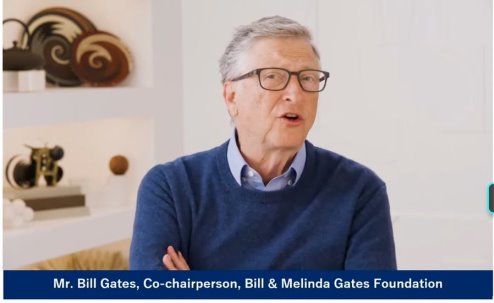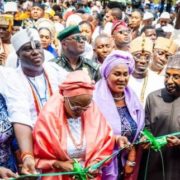In a landmark address at the African Union’s Nelson Mandela Hall in Addis Ababa, Bill Gates, Chair of the Bill & Melinda Gates Foundation, announced that the majority of the foundation’s historic $200 billion commitment over the next 20 years will be invested in Africa, with a strong focus on healthcare, innovation, education, and economic development.
RELATED: Birth of Microsoft: Bill Gates, a simple kit, and the innovation that changed everything
“The majority of that funding will be spent on helping you address challenges here in Africa,” Gates said, reaffirming his personal pledge to give away nearly all his wealth within two decades.
Speaking to more than 12,000 African leaders, policymakers, diplomats, health workers, and youth both in person and virtually, Gates emphasized that Africa’s future prosperity hinges on bold leadership, collaboration, and technology.
“By unleashing human potential through health and education, every country in Africa should be on a path to prosperity – and that path is an exciting thing to be part of,” he said.
Focus on Primary Healthcare and Innovation
Gates stressed that investment in primary healthcare yields the greatest long-term returns, particularly when it comes to maternal and child health.
“Helping a woman stay healthy and well-nourished before and during pregnancy, and ensuring her child gets proper nutrition in their first four years, makes all the difference,” Gates emphasized.
He praised African countries such as Nigeria, Rwanda, Ethiopia, Zimbabwe, Mozambique, and Zambia for pioneering local solutions to health challenges through data, frontline health expansion, and innovation despite fiscal limitations.
Artificial Intelligence and Africa’s Innovation Potential
Highlighting the transformative power of AI, Gates expressed optimism about its role in Africa’s digital future:
“Africa skipped traditional banking with mobile money. Now, it has the chance to leap ahead again with AI-powered health systems,” Gates said.
He cited Rwanda’s use of AI in ultrasound diagnostics to detect high-risk pregnancies early as a promising example. During his tour, Gates will also explore how Nigeria’s AI strategy is being shaped by local innovators.
Strong African Voices Call for Shared Commitment
Joining the conversation were notable African leaders and advocates:
-
Dr. Ngozi Okonjo-Iweala, Director-General of the WTO, credited Africa’s health progress to “government leadership, resilient communities, and partnerships that deliver.”
-
Amina J. Mohammed, UN Deputy Secretary-General, and
-
Mrs. Graça Machel, renowned advocate for women and children, stressed the importance of long-term, respectful partnerships rooted in African priorities.
“Mr. Gates’ enduring collaboration with Africa reflects deep respect for African leadership, innovation, and ideas,” Machel said.
Gates Foundation’s Legacy in Africa
The Gates Foundation has spent the last two decades working with African partners to save lives, develop vaccines, and strengthen health systems. Its work has helped drive more than 100 health innovations and contributed to saving over 80 million lives through global alliances like Gavi and the Global Fund.
During this week’s visit to Ethiopia and Nigeria, Gates is meeting with national leaders including Prime Minister Abiy Ahmed and President Bola Ahmed Tinubu to reaffirm the foundation’s support. He’s also engaging with grassroots health workers, scientists, and digital innovators to discuss primary healthcare reforms, AI integration, and local development priorities.
“Our foundation has increased its commitment to Africa. From our first office in Ethiopia to new locations in Nigeria, Kenya, Senegal, and South Africa, we are here to build deeper partnerships,” Gates stated.
The $200 billion commitment will focus on three main goals:
-
Ending preventable deaths of mothers and children
-
Eradicating deadly infectious diseases
-
Lifting millions out of poverty through education and health
The foundation will sunset its operations at the end of this 20-year vision, aiming to make as much measurable impact as possible before then.






























